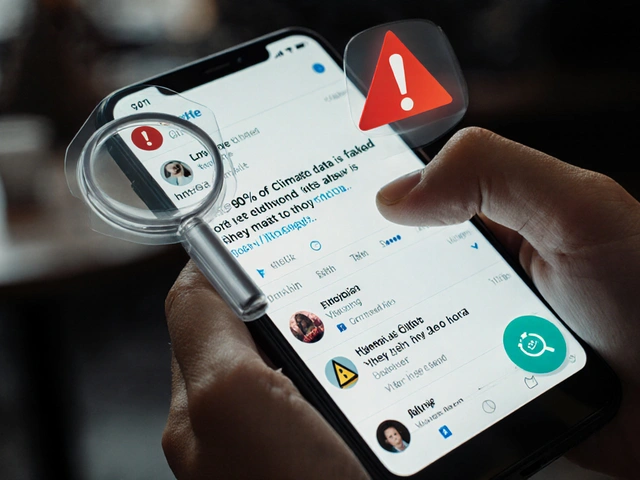Social media marketing, or SMM, is undergoing a remarkable transformation with the infusion of artificial intelligence tools like ChatGPT. As businesses strive to connect and engage with audiences more creatively and efficiently, understanding the role of AI in SMM becomes increasingly important. With ChatGPT, marketers can harness the power of AI to not only produce engaging content but also to maintain consistent interaction with their community.
Imagine having an assistant that can develop unique content ideas and simplify the engagement process with audiences. ChatGPT can analyze vast amounts of social media data and provide valuable insights into audience behavior, preferences, and trends. This opens new doors for brands to engage more authentically and tailor their approaches to meet customer needs more precisely.
- Understanding ChatGPT in Social Media
- Creative Content Ideas and Generation
- Enhancing Customer Interactions
- Leveraging Analytics and Insights
- Implementing AI for Campaign Optimization
Understanding ChatGPT in Social Media
ChatGPT is reshaping the landscape of social media marketing by offering fresh and dynamic methods for engaging with audiences. Its integration into the social media space means that businesses can now tap into AI to amplify their outreach strategies in ways that weren't possible before. At its core, ChatGPT functions as a generative language model capable of understanding and producing human-like text, making it a powerful tool for content creation and user interaction. This tool doesn't just automate responses; it analyzes data, predicts audience behavior, and helps brands fine-tune their messages for greater impact.
One particular advantage of ChatGPT is its ability to create personalized content at scale. For social media campaigns, this means crafting messages that resonate on a personal level with the audience, enhancing both engagement and loyalty. By employing natural language processing (NLP), ChatGPT can sift through user data and social media interactions to identify trends and preferences, facilitating the creation of content that is timely and relevant. This dynamic content creation process can lead to an increase in audience retention as users find the brand's messages more relatable and tailored to their interests.
Moreover, the adoption of ChatGPT in SMM enables more efficient management of social media channels. It can handle routine customer inquiries, provide instant responses, and free up human resources for more strategic activities. According to a report by Gartner, 30% of customer interactions are expected to be influenced by AI by 2025, highlighting the growing reliance on tools like ChatGPT. This tool doesn't only help in responding to customer queries but can also be set up to flag problematic interactions for human intervention, ensuring that complex issues are handled with the appropriate care.
"AI won't replace marketers, but marketers who use AI will replace those who don't," affirmed Paul Roetzer, founder of the Marketing AI Institute.
Another critical aspect of integrating ChatGPT into social media platforms is the potential for actionable insights through analytics. With its AI-driven analytical capabilities, ChatGPT assists marketers by providing detailed insights into campaign performance, helping them make informed decisions to adjust strategies in real-time. This practical application of AI allows businesses to not only understand what resonates with their audience but to predict the success of future campaigns. Through such precise feedback loops, brands gain a competitive edge in the pacey world of social media marketing.
Creative Content Ideas and Generation
In today's fast-paced digital landscape, capturing the audience's attention requires more than just posting regular updates. It's about crafting compelling narratives that resonate with your followers. This is where ChatGPT showcases its brilliance. By leveraging this advanced AI, you can streamline your content creation process, making it both robust and adaptable. Imagine being able to tap into an AI that understands current trends and can align them with your brand's voice. ChatGPT does precisely that by analyzing vast data pools, thus providing insightful content suggestions in real-time. So instead of racking your brain for the next big idea, you have a partner in AI. According to industry expert Neil Patel, '
the future of content marketing doesn't just involve AI – it thrives on it.'ChatGPT is proof of this evolving narrative, where AI assists in conceptualizing and generating engaging posts.
Creating relevant and compelling content is often cited as the most challenging aspect of social media marketing. However, social media marketing (SMM) with AI can redefine this challenge as an opportunity. With ChatGPT, marketers can confidently explore various content territories, from witty notifications and captivating storytelling to image-rich posts and direct audience engagement. Envision launching a campaign where each post, tweet, or story isn't just relevant but strategically designed to boost engagement and strengthen brand loyalty. In this regard, ChatGPT acts as a creative muse, facilitating not only the style and aesthetics of content but also the timing and frequency of posts – elements crucial for virality and sustained audience interest. If you've ever dabbled in creative writing workshops, you might recognize certain structured brainstorming practices that spark inspiration; ChatGPT embodies a similar function, continuously offering fresh perspectives to vitalize your brand's online presence.
Take, for instance, the use of nostalgia in content marketing – a powerful emotion that evokes connection and trust among consumers. ChatGPT can assist by generating content ideas that cleverly incorporate nostalgia, based on extensive analyses of trending themes and past successful campaigns. Where manual research might falter in identifying these patterns, AI excels, processing and delivering the right snippets of information to trigger that cherished nostalgia. Additionally, AI's capability to adapt to different platforms' unique requirements ensures that content isn't just duplicated but specifically tailored. Whether it's an intimate Instagram story, a succinct tweet, or a detailed LinkedIn post, ChatGPT's role is to enhance your brand's voice, adjusting with agility across social media platforms.
With actionable AI insights, social media managers can also take a step further by actively testing which types of content perform best among diverse audience segments. This empowers brands to craft messages that resonate personally while also reaching a broader audience base. Moreover, with more than 3.5 billion social media users worldwide, it's crucial to maintain relevance in a competitive market. Incorporating AI tools like ChatGPT into your creative process can act as a differentiator. Consider the process akin to having a brainstorming session with a limitless scope: ChatGPT not only simplifies the generation of content ideas but nurtures a continual flow of creativity, much needed in maintaining a dynamic digital presence.

Enhancing Customer Interactions
The dynamic nature of social media today demands a lively and continuous interaction with customers, a task that can be effortlessly executed with ChatGPT. The AI's ability to simulate human conversations allows businesses to engage in persistent and meaningful dialogue with their audience. In an era where customer service forms a significant part of the brand's identity, having a reliable tool that offers swift and polite responses is invaluable. ChatGPT shines in managing these interactions, whether addressing queries, accepting feedback, or handling complaints, all in real-time.
The beauty of ChatGPT lies in its flexibility and scalability, offering solutions tailored to the company's specific needs. For small businesses or startups, maintaining a 24/7 active social media presence without overstretching resources can be a challenge. ChatGPT can fill this gap by handling most customer interactions, allowing human representatives to focus on more complex issues. This technology can process millions of requests with consistent efficiency, ensuring that customers receive the attention they need without unnecessary delays.
One intriguing aspect of integrating AI in consumer interactions is the personalization factor. With social media marketing becoming more about personal connection and less about overt sales pitches, ChatGPT’s advanced language processing allows it to tailor conversations based on past interactions or behavioral patterns. This personal touch can significantly boost customer engagement levels, building trust and fostering loyalty. Imagine a virtual assistant that knows its users almost as well as any salesperson and can recommend content, services, or products tailored to individual preferences. Such personalization is a game-changer in digital marketing strategies.
Moreover, it is crucial for businesses to track and analyze customer interactions for continuous improvement. ChatGPT not only engages with customers but collects valuable data from these interactions. By analyzing this data, businesses can gain insights into what their customers like or dislike, what services are most sought after, and what improvements they might need to implement. Some companies find that after implementing AI-driven solutions, their customer satisfaction metrics improve notably, sometimes by as much as 30% or more.
According to a recent survey, about 63% of customers expect a company's social media presence to offer customer service. With these expectations, integrating ChatGPT can significantly boost a brand's capability to meet customer demands.
Gartner predicts that by 2027, chatbots will become the primary customer service channel for roughly a quarter of organizations, cutting costs, and improving response times.This projection highlights the growing acceptance and implementation of AI in customer service channels, making it vital for organizations to consider its effectiveness in delivering superior customer experiences.
A well-structured strategy using ChatGPT not only enhances customer satisfaction but also lifts a brand's image as responsive and innovative. As social media channels continue to evolve, businesses must adapt by leveraging AI tools to streamline interactions and foster a dynamic, engaging presence. Integrating ChatGPT with social media marketing efforts offers a practical, sustainable path forward, allowing brands to connect with audiences on deeper, more engaging levels.
Leveraging Analytics and Insights
Social media is not just about posting engaging content; it’s also about understanding your audience and refining your strategies over time. This is where the analytics and insights from ChatGPT become incredibly valuable for social media marketing. At the heart of every successful campaign lies data-driven insights. ChatGPT, with its unparalleled abilities to process and interpret data, can transform raw data into valuable information. By examining patterns and behaviors, companies can tailor their strategies to meet evolving customer needs. This approach helps in crafting messages that resonate well with different demographics.
Apart from text analysis, ChatGPT can assist in visual content analytics as well. For instance, when it comes to Instagram or Pinterest, understanding which types of visuals garner the most engagement can direct marketers to design better-content styles. This aligns with findings from reports that highlight how posts with high-quality images average a 38% increase in engagement. The ability to swiftly identify trends means that marketers can spot shifts in sentiment. By analyzing thousands of customer interactions, campaigns can pivot quickly to align with positive or corrective actions.
Harnessing insights also means tracking metrics like engagement rates, click-through rates, and conversions, which are essential for evaluating campaign performance. ChatGPT’s ability to synthesize these metrics is especially useful for businesses with expansive social media presence across platforms. With AI's predictive analytics, companies can forecast future trends or potential viral content, allowing them to be proactive rather than reactive. According to John Green, Director of Market Research at TechHarmony, “Leveraging AI for insights allows us to foresee market shifts and adjust our strategies to capitalize on emerging opportunities.” ChatGPT’s analytical prowess not only saves time but empowers marketing teams with the information they need to drive impactful campaigns.
To utilize ChatGPT in monitoring campaign efficacy, consider setting up regular reports generated by the AI. These reports can include insights on what content garners the highest engagement, what time engagement peaks, and which demographic segments interact most with specific posts. Turning data into action requires a solid feedback loop. Regularly update your content strategies based on these findings to ensure continual alignment with audience expectations and preferences. The iterative process of using insights fosters a cycle of constant improvement, propelling brand growth and fostering a connection with customers.

Implementing AI for Campaign Optimization
In the evolving landscape of social media marketing, leveraging AI for campaign optimization has become both a necessity and an advantage that savvy marketers can't afford to ignore. ChatGPT, as a formidable AI tool, aids marketers by meticulously analyzing vast data sets to distill actionable insights and predict trends that are crucial for campaign success. This ability to analyze audience behaviors, tastes, and interactions paves the way for formulating more personalized and effective marketing strategies. With AI's capability of processing and understanding natural language, it identifies keywords, sentiment, and even the emotion conveyed in social media posts, which can be instrumental in optimizing social engagements.
One significant aspect of optimizing campaigns with AI is content performance analysis. By utilizing ChatGPT's analytical prowess, marketers can dissect the performance of various marketing campaigns across different platforms. This means understanding which content resonates most with audiences and which does not. Campaign elements like headlines, visuals, and posting times can be adjusted in real-time based on AI-driven insights, maximizing engagement and minimizing wasted ad spend. A social media post that might have seemed a sure hit can be re-evaluated and fine-tuned using AI feedback, thus ensuring resources are directed towards high-impact content.
Moreover, real-time data collection and analysis allow for adaptable strategies. Imagine rolling out a campaign and immediately receiving data on its performance, audience interactions, and sentiment analysis. AI, specifically ChatGPT, facilitates this kind of dynamic environment where strategies aren't set in stone and can evolve rapidly based on real-time feedback. This adaptability can be especially useful during a product launch or a promotional event, where staying attuned to audience reactions is critical. An agile approach not only increases the chances of campaign success but also empowers marketers to act on opportunities or challenges as they arise.
According to a McKinsey report, companies that leverage artificial intelligence in marketing can see a 10% increase in sales and a 20% reduction in marketing costs.These statistics highlight the cost-effectiveness and profitability boost that AI can provide. The potential for savings and revenue-generation makes a compelling case for adopting AI-powered tools like ChatGPT into digital marketing arsenals. By forecasting trends and consumer behavior with remarkable accuracy, ChatGPT enables companies to plan ahead, reduce risks, and seize opportunities before their competition.
Finally, implementing AI for campaign optimization involves developing a thorough understanding of AI capabilities and integrating them seamlessly with human innovation. While AI tools like ChatGPT offer advanced data processing, the human touch remains essential in crafting narratives and real connections with audiences. Marketing teams must therefore strike a balance, leveraging AI to refine strategies while retaining their authentic voice and brand persona. By achieving this synergy, brands can unlock unparalleled opportunities for growth and engagement.




Write a comment